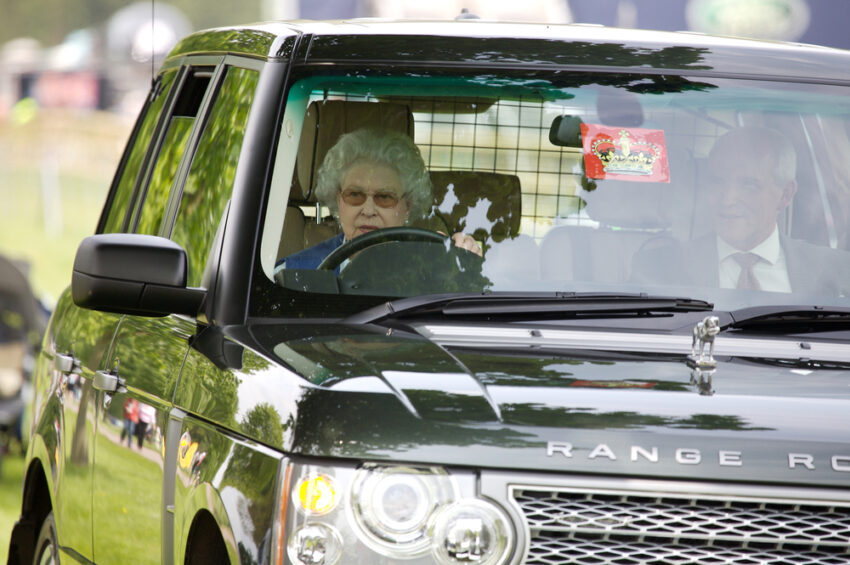
Jaguar Land Rover has announced that it is to drop the 75-year-old “Land Rover” brand in a reboot of the automotive giant, which will also include a relaunch of Jaguar as an electric marque whose models will start at £100,000 a time.
The group’s first all-electric Range Rover, built in Solihull in the West Midlands, will also launch in 2024 as the company doubles its investment plans to £15 billion over the next five years as part of a strategy of to end all internal combustion engine models by 2036.
The company has, however, declined to explain from where it is going to source the batteries for its electric vehicles, other than to say that Tata, its Indian conglomerate parent, will build a gigafactory somewhere in Europe.
In the interim, batteries will be sourced from unnamed overseas suppliers. Those batteries appear likely to be brought into the UK, where they will be assembled into battery packs at the group’s Wolverhampton plant, which formerly made diesel engines, and at another facility at Hams Hall near Birmingham.
More than two years since the heavily loss-making and deeply indebted Jaguar Land Rover launched its “Reimagine” programme to revolutionise the company and plot a path to zero-emission automotive production, the group said it was now also going to reinvent itself as a “house of brands”.
The late Queen Elizabeth II driving one of her many Land Rover cars
The words Land Rover are not to be totally expunged from motoring history, the company said. Some vehicles will carry small Land Rover badges inside and out as what a spokesperson called a “trust mark”.
Thierry Bolloré, who launched the programme, left the company at the end of the last year, citing personal reasons. The group has been silent over the progress of Reimagine, leading many to fear the worst for Britain’s largest automotive employer.
It has now decided to drop the Land Rover name — the holding company will become JLR — and it will split itself into four brands: the top-priced Range Rover; the off-road-capable Defender, built in Slovakia; Discovery, planned to be used as a family brand; and Jaguar, which is dropping its entire model line-up and starting again with three new vehicles.
That will start with a £100,000 four-door high performance GT model, or grand tourer, to be built in Solihull. The company declined to comment on the other models but one will almost certainly be an heir to the two-door E-type sports car of the 1960s.
Gerry McGovern, JLR’s chief designer, said that Sir William Lyons, Jaguar’s founder, had originally demanded that the brand “will be a copy of nothing”. McGovern said that his role has been to take the marque back “out of the mainstream” and to once more produce vehicles that “will give a sense of never having been seen before”.
Adrian Mardell, who was promoted from finance director to interim chief executive whilst Tata continues its search for a permanent replacement, admitted that the group had gone through a complete change of strategy and will reposition itself as a stable of “modern luxury” brands.
He conceded that a reinvention of the Jaguar brand was an attempt to complete “unfinished business” after the marque appeared to be in danger of falling into obscurity in the face of an assault on the electric market by Tesla and others.
Mardell said the group had financially turned a corner. Having gone back into profit during the last financial year, which closed at the end of last month, Mardell said that in the past six months it had harvested £1.3 billion of cash. That level of cashflow in the coming years, he said, will underpin investment of £3 billion a year over the next five years.
The cashflow has been created by the average price of JLR models mushrooming over the past four years from an average of £44,000 to £71,000. They are set to go even higher in the future. Four years ago the company needed to make 660,000 vehicles a year to break even, but that has now been more than halved to 300,000.
Mardell said the company will be net cash positive by 2025 and will have double-digit operating profit margins in the year after that.
The company declined to comment on what its reinvention means for jobs — it has an international workforce of 40,000 — other than to say that 29,000 staff are having to be “upskilled” to build, sell and service electric vehicles.
In addition to the first new electric Range Rover and Jaguar being built in Solihull, its Halewood factory on Merseyside, home of the Range Rover Evoque, will become an all-electric facility from 2025.
Read more:
Iconic British Land Rover brand to be dropped after 75 years as Jaguar goes all electric




